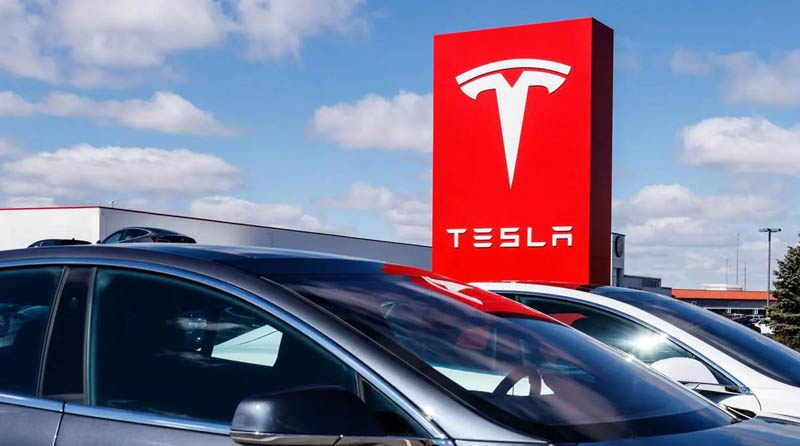Investment firm Jefferies has lowered their price target on Tesla stock down to $250, decreased from their previous forecast of $265 per share. In the analyst note explaining this revised valuation, Jefferies argues that Tesla’s edge in the auto industry is gradually declining as competitors replicate their innovations over time.
Morgan Stanley Remains Bullish Robotaxis, Note $TSLA: In Defense of Robotaxis
Specifically, Jefferies states: “We continue to think that everything Tesla does differently from the rest of the industry can also be done by others if given time, making speed essential to maintain an edge. The latter seems to have been eroding, from product features.”
This analysis echoes a common stance from Tesla critics – that competition is coming. The belief is that as legacy automakers and new EV startups catch up on things like battery range, performance, charging infrastructure, and software, Tesla will lose its competitive advantage. However, that supposed onslaught of credible competition has failed to fully materialize despite over 10 years of warnings.
While other automakers are certainly expanding their EV offerings, Tesla continues to lead in critical areas like battery cost and efficiency, rapid charging capabilities, over-the-air software updates, and advanced autopilot features. Moreover, competitors are still reliant on third-party suppliers for key components like battery cells. Tesla’s vertical integration grants further efficiencies and control.
With accelerating innovation and new products like Cybertruck in the pipeline, Tesla seems unlikely to stagnate. Jefferies’ insistence that the company’s advantage is fleeting ignores their breakneck speed of improvement across both products and manufacturing. Legacy automakers may one day catch up, but Tesla’s lead appears formidable for the foreseeable future.
In the end, Jefferies’ lowered price target and claims of eroding competitive edge seem rooted more in wishful thinking than empirical reality. Until Tesla’s rivals can truly match them across the board, which may take many more years, Tesla’s pole position in the auto industry looks secure. Forecasts of their imminent decline have thus far proven hollow.
Related Posts:
Tesla Delivers 435,059 Vehicles in Q3 2023, Short of analyst estimates deliveries
Morgan Stanley: Tesla Software Focus May Blur Lines Between Cars and Mobile Devices
